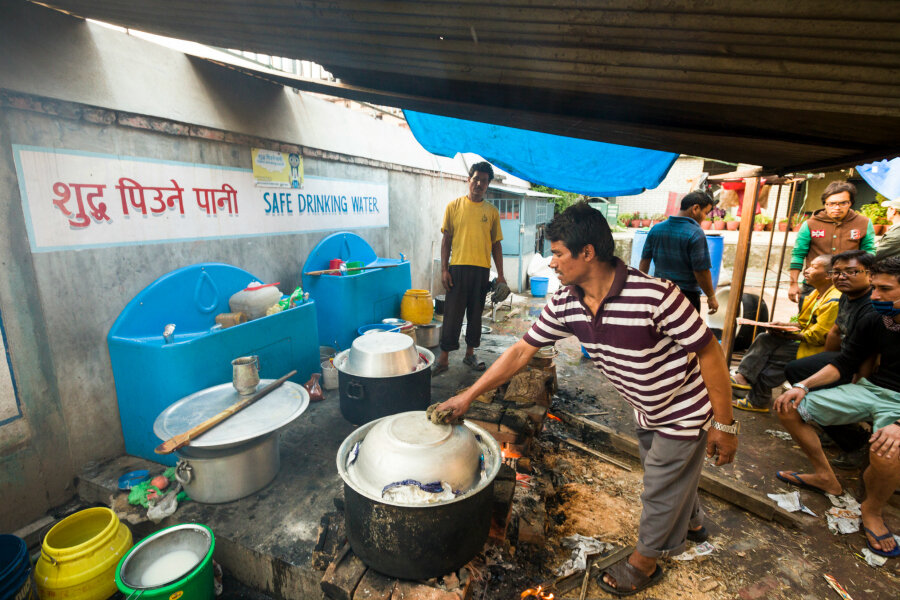Eric Stowe makes a Splash for clean water
Loading...
While Eric Stowe was working in orphanages in Asia, he observed firsthand the poor and debilitating quality of water that was being provided to the children.
At the same time, he couldn’t help but notice that hotels and global food chains, even those in communities without access to clean water, were able to secure purified water for their guests.
Mr. Stowe knew it must be possible to leverage that same technology to help children and families living in poverty. He founded Splash, an international nonprofit group, to provide safe water and, ultimately, put itself out of business by creating a sustainable water infrastructure.
“We are a social justice organization,” he says. “We certainly do that through ... water, [but] it is all about equity.”
Splash has built and maintains a presence around the globe – in locations such as China, India, and Ethiopia. It also has been on the ground for seven years in Nepal, which made headlines in recent weeks in the aftermath of a series of deadly natural disasters.
A pair of powerful earthquakes April 25 and May 12, as well as hundreds of smaller aftershocks, left behind widespread devastation, with the estimated death toll topping 8,500. News media reports indicate close to half a million houses have been flattened and some 300,000 others have suffered heavy damage.
Nepal represents the largest Splash program, which includes nearly 30 staff members on the ground and strong ties to Nepalese governmental agencies and educational institutions. Splash has installed a network of self-sustaining water-filtration systems throughout the country’s Kathmandu Valley.
“We have invested more than $3.5 million since 2007,” Stowe says.
Schools have become meeting places for many of those displaced by the earthquakes, he says. “Schools are the central ground where people are converging, where they are congregating.”
Splash is not a disaster relief organization. It remains focused on fostering long-term, sustainable development.
“We really are about trying to establish a local ecosystem that can stand on its own without us,” he says.
The nonprofit has grown from having a single employee – Stowe himself – in 2007 to 55 today. It works in eight countries, and today it cleans water for more than 300,000 children each day.
Splash has also added hygiene education to its original focus on safe drinking water. Its goal: “clean water, clean hands, and clean toilets” for everyone, he says.
In the days before the first earthquake in Nepal, nearly 150 schools and more than 100,000 children were being served through Splash each day, a figure that represents more than half of Kathmandu’s children. Many of the filtration systems remain fully functional and have the capacity to meet the 500 percent increase in demand following the natural disasters.
Disaster relief efforts are still desperately needed, Stowe says, but long-term solutions will be just as critical.
“When we think of recovery, we are looking at how we can get systems that provide routine, consistent, and [high] quality [water] delivery to the poor,” he says. “It’s about how you can make something that lasts.”
• To learn more, visit www.splash.org.





